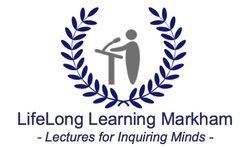Oct. 21 – Valerie Jerome – “The Trials and Triumphs of Canada’s Fastest Family”
Valerie Jerome
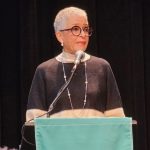 I was born in St Boniface, Manitoba in 1944 and lived there until my family moved to North Vancouver in 1951. I graduated from North Vancouver Sr High in 1962 and began teaching in the Vancouver school system in 1964, the same year I married. My Bachelors of Education was completed over many years of night classes and summer school because at that time a teaching certificate could be attained after only 2 years of study. Enlarging the learning experience beyond the classroom was central to my practice and I engaged my students in many public issues that touched their lives. One such example was while at Southlands school I had my students present individual briefs at the hearings to preserve the UEL. When these lands became Pacific Spirit Park, they learned that their voices could help shape public policy. I retired from my much loved teaching career in 2001.
I was born in St Boniface, Manitoba in 1944 and lived there until my family moved to North Vancouver in 1951. I graduated from North Vancouver Sr High in 1962 and began teaching in the Vancouver school system in 1964, the same year I married. My Bachelors of Education was completed over many years of night classes and summer school because at that time a teaching certificate could be attained after only 2 years of study. Enlarging the learning experience beyond the classroom was central to my practice and I engaged my students in many public issues that touched their lives. One such example was while at Southlands school I had my students present individual briefs at the hearings to preserve the UEL. When these lands became Pacific Spirit Park, they learned that their voices could help shape public policy. I retired from my much loved teaching career in 2001.
During those years I became active in Green politics as my son, Stuart Parker, had become
leader of the BC Green Party. I ran in seven elections – civic, provincial and federal between
1988 and 2000 when environmental issues were not on the radar for the vast majority of
Canadians. I attended International Green Congresses in Sweden and Switzerland.
I have spent much of my life in the athletic arena, initially as an athlete when at age 15 when I
became Canadian senior women’s champion in the sprints and and long jump. I competed for
Canada in the Olympic, British Commonwealth and Pan American Games. For more than 30
years I was a chief official for jumping events for Canadian Athletics in hundreds of meets –big
and small, and including the Olympics, Commonwealth Games and World Championships. In
my capacity as a teacher I coached athletics, volleyball, cross country and gymnastics as well as
a community coach for junior and senior track and field athletes.
For fifteen years I had the pleasure of being a volunteer for the Vancouver Writers’ Festival.
And an equally keen volunteer at Ballet BC.
I was a founding member of the board for Vancouver Youth Theatre, The BC Black Educators.
Many lengthy volunteer hours went into the annual BC Junior Black Achievement Awards.
I was a very active member of the Goh Ballet Board for more than 12 years.
Since retiring from teaching, I have worked through the BCTF on two English language
initiatives in Namibia.
I presently sit on the Board of Crystal Pite’s Kidd Pivot Dance company, and Shay Kubler’s
Radical Systems Dance. I have recently become a Board member of Springboard, an
international dance program for emerging choreographers and dancers based in Montreal and
New York.
Over the last 25 years I have been giving Black History Month talks in public and private
elementary and secondary schools as well as at community events. I have given the address to
SFU Education graduates and to Sprott Shaw college Graduates.
I founded the Harry Jerome Commemorative Society which worked for four years to create the
statue of my late brother on the Stanley Park Seawall.
I have a passion for birding.
I was a recipient of a Canada 125 Award in 1992 for work to preserve the environment.
With a small group of Kerrisdale residents I was a recipient of a Vancouver Heritage Award for
our efforts to preserve trees in this city.
Also while living in Kerrisdale my ex husband and I were recipients of Kerrisdale Community
Centre’s Volunteers Award.
(Although I am not yet deceased )-The parents of former athletes and students have installed a
bench with my name on it beside the statue of my brother on the Stanley Park Seawall.
At my retirement another bench bearing my name has been installed- this one on the school
grounds at Sir Wilfrid Laurier School at 57th and Laurel St.
And in recent years I was named amongst UBC’s Faculty of Education’s 100 Distinguished Scholars.
Oct. 28 – Patti Lefkos – “The Unexpected Wonders of Trekking 800 km on Nepal’s Great Himalaya Trail.”
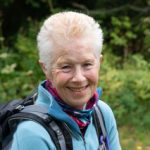 Patti Shales Lefkos, aged 77, is a Canadian author, journalist, adventure traveller and humanitarian. Along with her husband, Barry Hodgins, aged 76, she recently trekked 800 kms on Nepal’s Great Himalayan Trail. Join Patti on an invigorating, occasionally hilarious, often grueling, inspirational high altitude ramble half the length of Nepal along majestic trails reaching as high as 5,550 metres. Experience breathtaking scenery, meet warm hearted, welcoming Hindu, Buddhist and Sherpa locals and witness the personal resilience necessary to complete this fascinating yet arduous journey.
Patti Shales Lefkos, aged 77, is a Canadian author, journalist, adventure traveller and humanitarian. Along with her husband, Barry Hodgins, aged 76, she recently trekked 800 kms on Nepal’s Great Himalayan Trail. Join Patti on an invigorating, occasionally hilarious, often grueling, inspirational high altitude ramble half the length of Nepal along majestic trails reaching as high as 5,550 metres. Experience breathtaking scenery, meet warm hearted, welcoming Hindu, Buddhist and Sherpa locals and witness the personal resilience necessary to complete this fascinating yet arduous journey.
Patti’s debut travel memoir, NEPAL ONE DAY AT A TIME is the story of her first solo volunteering and trekking trip. Her second book, GROUNDED BY GRANITE illuminates the childhood experiences that gave her the strength and resilience to excel at her outdoor pursuits and humanitarian efforts. She is currently at work on her third book NEPAL IT’S
NEVER TOO LATE, Redefining Love, Connection and Personal Resilience on The Great
Himalaya Trail. Patti’s articles, profiles, columns and travel writing have appeared in a
range of Canadian and international publications including The Globe and Mail,
Maclean’s and the San Francisco Chronicle.
Born and raised in Toronto, she has lived in Neuchatel, Switzerland and Vancouver.
Following a rewarding career as a teacher, administrator and advocate for inner city
children, Patti studied journalism at Langara University. She holds a BA from the
University of Toronto, Teaching Certificate from Toronto Teachers’ College, Masters of
Environmental Education from Simon Fraser University and completed the Wilderness
Leadership Program at Capilano University in North Vancouver.
Whether canoeing, skiing or trekking, she embraces the culture and environment of
wilderness areas. After the devastating earthquake in Nepal in April 2015 Patti and her
husband, founded BC non-profit Nepal One Day at a Time Society to support education
and home building in the Gorkha district, the epicentre of the earthquake. Nepal One Day
at a Time Society partners with Kathmandu based NGO Sambhav Nepal and Vernon
BC’s Kalamalka Rotary. Book profits support education in Nepal.
Her winter home base is SilverStar Mountain Resort in BC’s Okanagan Valley. In
summer she lives at her Ontario island cottage.
Nov. 4 – Vid Ingelevics and Ryan Walker – “Documenting Toronto’s Journey to Climate Resiliency”
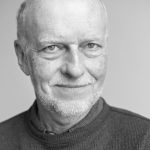 Vid Ingelevics is an educator, visual artist, independent curator and writer. His artwork has followed several threads – issues related to commemoration, memory and the representation of the past (in particular, the role of the museum and archive) as well as our experience of urbanity. Often working in an installation format that has included photography, multi-channel video and sculpture, his projects have ranged from explorations of the pathology of personal and institutional memory to the impact of forced displacement on refugees and succeeding generations to the politics of the distribution of current communications technologies. His artwork and curatorial projects have been presented in exhibitions in Canada, the United States, Europe and Australia.
Vid Ingelevics is an educator, visual artist, independent curator and writer. His artwork has followed several threads – issues related to commemoration, memory and the representation of the past (in particular, the role of the museum and archive) as well as our experience of urbanity. Often working in an installation format that has included photography, multi-channel video and sculpture, his projects have ranged from explorations of the pathology of personal and institutional memory to the impact of forced displacement on refugees and succeeding generations to the politics of the distribution of current communications technologies. His artwork and curatorial projects have been presented in exhibitions in Canada, the United States, Europe and Australia. Ryan Walker is a lens-based artist whose photographic and cinematic works delve into narratives encompassing themes of land, identity, and the diverse ways in which society is grappling with and embracing the challenges posed by our changing climate.
Ryan Walker is a lens-based artist whose photographic and cinematic works delve into narratives encompassing themes of land, identity, and the diverse ways in which society is grappling with and embracing the challenges posed by our changing climate.
In 2019, Ryan embarked on a significant collaboration with former TMU professor, Vid Ingelevics. Together, they secured a 5-year artists’ commission from Waterfront Toronto, tasked with meticulously documenting and thoughtfully interpreting the dynamic evolution of the Port Lands Flood Protection Project – one of the largest climate change adaptation and civil works projects in North America.
Ryan received his MFA in Documentary Media at TMU in 2013. His work has been exhibited in Canada, Netherlands, Italy, Russia, Australia and the U.S. Various works have appeared in Der Spiegel (Germany) and D Repubblica Magazine (Italy), enRoute Magazine, Report on Business Magazine, The Globe & Mail, Azure, Canadian Architecture and PDN Emerging Magazine.
Documenting Toronto’s Journey to Climate Resiliency
Chronicling the momentous changes from the ongoing revitalization of Toronto’s Port Lands, artists Vid Ingelevics and Ryan Walker have spent years creating a photographic record of the changes in this corner of the city.
Their work captures many of the complexities of this important construction project, including landscape changes and portraits of the workers, and through their images, connect Torontonians to the most significant infrastructure project the city has ever undertaken to build climate resiliency on our waterfront. Through their camera lenses, explore the Port Lands’s transformation from a blank, postindustrial landscape to a restored river valley, and discover how the city is redefining its relationship with the Don River.
Hosted by ROM’s Soren Brothers, this program examines Toronto’s transforming identity as a climate leader in North America, how this project will forever change the city’s waterfront and our relationship with the iconic Don River, and the significance – and importance – of documenting that change.
Nov. 11 – Dr. Thomas Verny – “The Embodied Mind”
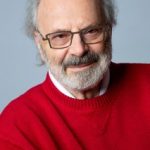 Thomas R. Verny is a psychiatrist, academic, award-winning author, poet, global speaker, blogger on Psychology Today and columnist for The Globe and Mail. He is the author of eight books, including The Secret Life of the Unborn Child, published in 33 countries. His most recent book, the Embodied Mind, Understanding the Mysteries of Cellular Memory, Consciousness, and Our Bodies, (2021, Pegasus, NY), is available in English, Spanish, Greek, Russian, Portuguese, and Czech. Verny is the author of 48 scientific papers. He has previously taught at Harvard University, University of Toronto, York University (Toronto), St. Mary’s University (Minneapolis) and the Santa Barbara Graduate Institute. Verny is Associate Editor, Journal of Pre- and Peri-natal Psychology and Health (JOPPPAH), and Founding President APPPAH. Verny is a member of the Ontario Review Board (ORB)
Thomas R. Verny is a psychiatrist, academic, award-winning author, poet, global speaker, blogger on Psychology Today and columnist for The Globe and Mail. He is the author of eight books, including The Secret Life of the Unborn Child, published in 33 countries. His most recent book, the Embodied Mind, Understanding the Mysteries of Cellular Memory, Consciousness, and Our Bodies, (2021, Pegasus, NY), is available in English, Spanish, Greek, Russian, Portuguese, and Czech. Verny is the author of 48 scientific papers. He has previously taught at Harvard University, University of Toronto, York University (Toronto), St. Mary’s University (Minneapolis) and the Santa Barbara Graduate Institute. Verny is Associate Editor, Journal of Pre- and Peri-natal Psychology and Health (JOPPPAH), and Founding President APPPAH. Verny is a member of the Ontario Review Board (ORB)
Over the years, Verny’s short stories and poems have appeared in many literary journals. His
collected poems were published as Cordless in 2014.
In 2004 Mothering Magazine, in recognition of Verny’s contributions to the field of
parenting and child rearing, named him one of their “living treasures.” In 2005 the Santa
Barbara Graduate Institute bestowed on Verny a Doctorate of Humane Letters (DHL).
Verny lives with his wife in Stratford, ON, Canada.
The Embodied Mind and Cellular Intelligence
Scientific emphasis on the brain has been baked into our culture for millennia. The
Western world even before the Greek civilization, has been patriarchal, giving rise to
a hierarchical social structure. The same vertical system has been unconsciously
adopted in medicine. Doctors and scientists think of this system as strictly one way,
mostly top-down, rarely bottom up. The latter is usually perceived as negative, as
when you have a duodenal ulcer or a heart attack.
In July 2007, a 44-year-old French man visited a hospital complaining of a mild
weakness in his left leg. The resulting scans of his head revealed that despite living a
relatively normal life, this patient was missing 90% of his brain. Verny asked himself,
“How could a person with practically no brain be married with two children and
manage to be gainfully employed in the French civil service?” After spending seven
years studying thousands of books and research papers concerning this subject he
wrote The embodied Mind.
In THE EMBODIED MIND LECTURE, Dr. Verny sets out to redefine our
understanding of the mind and its relationship to the body. Synthesizing the latest
medical research, Dr. Verny will present disparate findings in physiology, genetics,
and the body-brain connections to illustrate the mounting evidence that somatic cells,
not just neural cells, store memory, inform genetic coding, and adapt to
environmental changes. Verny’s work shifts the emphasis to bottom-up
instead of top-down communication advocating a more balanced approach to the
body and health. This has far-reaching consequences for health and society.
The Embodied Mind shows how intelligence and consciousness—traits traditionally
attributed to the brain alone—permeate our entire being. Whether or not we can
consciously access a memory, the lived event has left an imprint on our cells and
tissues.
The world is moving from a traditional, hierarchical and vertical system, towards a
network system, a reticular and horizontal system. It is the existence in our bodies of
an interconnected, unified, multilevel, homeostatic, cellular intelligent system that
allows us to be fully functional human beings with an Embodied Mind and not just an
enskulled mind. This lecture is not just about biology, it is about enhancing the
human experience.
Nov. 18 – Dr. Scott Hopkins – “Forever Chemicals”
 Scott Hopkins is a Professor of Chemistry at the University of Waterloo. His research interests lie at the intersection of chemistry and physics for charged molecules and clusters, where he applies experimental, theoretical, and machine-learning methods to deduce molecular properties. Dr. Hopkins has received several awards for his research, including the Keith Laidler Award of the Canadian Society for Chemistry and the PerkinElmer Award of the Canadian Society for Analytical Sciences and Spectroscopy. Dr. Hopkins has published more than 100 peer-reviewed articles in highly regarded journals, including the Journal of the American Chemical Society, Angewandte Chemie, and Nature Communications, and he has co-authored six patents. He is the project lead and director for the new Canadian free electron laser facility that is being built at the University of Waterloo.
Scott Hopkins is a Professor of Chemistry at the University of Waterloo. His research interests lie at the intersection of chemistry and physics for charged molecules and clusters, where he applies experimental, theoretical, and machine-learning methods to deduce molecular properties. Dr. Hopkins has received several awards for his research, including the Keith Laidler Award of the Canadian Society for Chemistry and the PerkinElmer Award of the Canadian Society for Analytical Sciences and Spectroscopy. Dr. Hopkins has published more than 100 peer-reviewed articles in highly regarded journals, including the Journal of the American Chemical Society, Angewandte Chemie, and Nature Communications, and he has co-authored six patents. He is the project lead and director for the new Canadian free electron laser facility that is being built at the University of Waterloo.
Forever Chemicals
University of Waterloo is leading an interdisciplinary team to detect, identify and treat per- and polyfluoroalkyl substances (PFAS) – better known as forever chemicals – in water systems affecting more than 2.5 million Canadians.
PFAS, are a new class of more than 4,000 environmental contaminants whose impact on human health is unknown. PFAS are used in a wide range of products such as cosmetics, textiles, fire-fighting foams and food packaging materials.
“PFAS are even more stable than plastics. Their carbon fluorine bond is one of the strongest that you can make in chemistry – very, very thermodynamically stable,” said Scott Hopkins, project lead and a professor in Waterloo’s Department of Chemistry. “Because it’s man-made, there are very few natural things that can actually impact it.”
“Traditional water treatment methods are ineffective at destroying these chemicals,” said Hopkins. “Many smaller Canadian communities do not have the capacity to test for pollutants like PFAS or the ability to implement new water and wastewater treatment technologies. As a result, pollutants will stay in their ecosystems and biomagnify, or build-up, in the local food web.”
Hopkins has partnered with professor Franco Berruti from Western University, along with USP Technologies, Brown and Caldwell, the Ontario Clean Water Agency, Ontario Water Consortium, Canadian Water and Wastewater Association, and seven regional water supply systems in Ontario.
“To tackle large, complex issues like this, you need to engage many experts who bring unique and valuable skills to the table. Our team has leading experts in chemistry, chemical engineering, artificial intelligence, water treatment, policy and regulation,” said Hopkins. “We have members from academia, industry, non-profit, and government agencies, all invested in solving this problem.”
Samples will be taken from input and along various points throughout the treatment process. Researchers will focus on catchment areas of Union Water Supply System, Lake Huron Primary Water Supply System, Elgin Area Primary Water Supply System, Lambton Area Water Supply System, Peel Region, the City of Cornwall Water System, and the cities of Durham and London.
Hopkins and his team will focus on the detection, characterization, and use of machine learning models to predict the physicochemical properties of PFAS and the transformation products generated by the treatment processes.
“Our specialty in ion mobility and mass spectrometry allows us to separate complex mixtures and see what’s in them,” said Hopkins. “We also use machine learning to infer things about the chemical processes that we’re dealing with and find the optimal treatment conditions so we can make the best use of the instrumentation we have.”
Western will focus on the treatment as Berruti, and his ICFAR colleagues have already made considerable advances in the destruction of PFAS in biosolids using thermochemical treatment (pyrolysis), and in water via UV treatment. This work is done in collaboration with Domenico Santoro, senior manager, research and innovation at USP Technologies Inc. and adjunct research professor at Western.
“This (NSERC Alliance Option 2) funding allows us to further our advancements in best practices for removing forever chemicals from Canada’s water supply,” said Franco Berruti, a professor from Western University. “In partnership with industry, municipalities, and colleagues from the University of Waterloo, ICFAR is extremely proud of our expanding research activities aimed at developing new innovations in water purification while making a direct impact on the community.”
Nov. 25 – Charlotte Gray – “Passionate Mothers, Powerful Sons”
 Charlotte Gray is one of Canada’s best-known writers of non-fiction. Born
Charlotte Gray is one of Canada’s best-known writers of non-fiction. Born
in England, and a graduate of Oxford University and the London School of
Economics, Charlotte moved to Canada in 1978 but has also lived in Tokyo,
Boston and New York City. She worked as a political commentator, book
reviewer and magazine columnist before she turned to biography and
popular history.
Passionate Mothers, Powerful Sons is Charlotte’s twelfth best-seller. Her
previous books include The Massey Murder; Reluctant Genius: Alexander
Graham Bell and the Passion for Invention; and Gold Diggers, Striking It
Rich in the Klondike. Gold Diggers was the basis of both a US Discovery
Channel docudrama and a PBS documentary.
Charlotte is vice-president of the Sir Winston Churchill Society of Ottawa,
has chaired the boards of both Canada’s National History Society and the
Art Canada Institute, and has frequently served on juries, including for the
Weston International Non-fiction Prize, the Cundill International History
Prize, Scotiabank Giller Prize, and the RBC Taylor Prize.
An adjunct research professor at Carleton University, in Ottawa, she holds
five honorary degrees, and is a member of the Order of Canada and a
Fellow of the Royal Society of Canada. Her work has appeared in all major
Canadian newspapers, the Guardian, the Smithsonian Magazine, and she
is a regular book reviewer for the Wall Street Journal.
Passionate Mothers, Powerful Sons
“Passionate Mothers, Powerful Sons; The Lives of Jennie Jerome Churchill and Sara Delano Roosevelt is a double biography of two strong-willed women, both born in New York in 1854, whose sons would help shape the world we live in. Despite the constraints of women’s roles in their lifetimes, Jennie and Sara learned how to take control of their destinies in dramatically different ways. Charlotte’s book was described in the Wall Street Journal as “terrific and insightful” and in the Literary Review of Canada as “a brilliant portrait of two influential mothers…[and] an important contribution to American presidential and British prime-ministerial history.”
